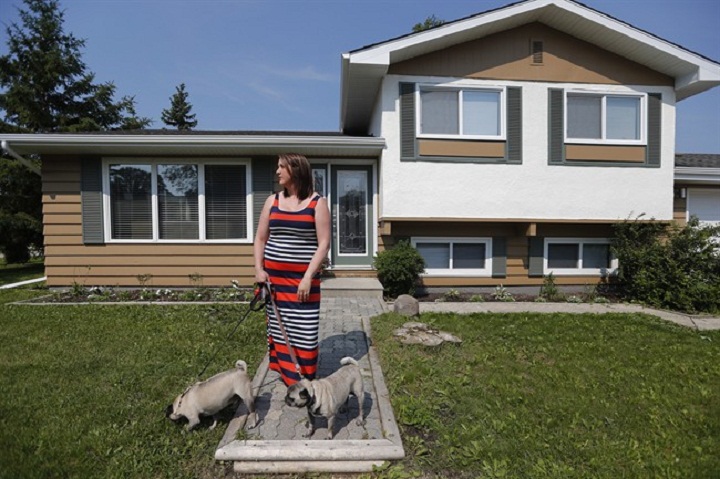TORONTO – At first glance, the mid-century, three-level Winnipeg home was everything that Sarah Fehr and her fiancee had been looking for.

It was located in the right neighbourhood, had a double garage and the backyard was spacious enough for the couple’s two pugs to frolic in.
Perhaps most importantly, it was reasonably priced.
However, a quick Google search revealed the home’s shadowy past: it had been busted several years earlier for housing a marijuana grow operation.
VIRTUAL TOUR: Behind the scenes of a marijuana grow-op
While former grow ops may seem like a good deal to some buyers, experts caution that banks and insurers are increasingly shying away from these properties — even after all of the necessary remediation has been done.
“It’s always been strict, but it was a lot looser four or five years ago,” says Jeff Mark, co-founder of broker Spin Mortgage, adding that only credit unions and subprime lenders are willing to finance these homes, often at higher rates than those offered by the banks.
Running a grow-op in a residential home can cause extensive damage that may be pricey to remedy.

Get breaking National news
High levels of moisture can cause mould to grow in the walls. Pesticides and other chemicals can seep into carpets and walls and contaminate the air. Even the home’s structural integrity and electrical wiring may be compromised.
Before a lender will agree to mortgage a former grow op, a battery of costly tests must be performed to ensure it is inhabitable.
RELATED: Constitutional challenge to marijuana grow-op sentences rejected by judge
Fortunately in Fehr’s case, the seller had already performed most of those tests, and the local credit union was willing to provide a mortgage. But finding insurance proved to be a headache, says Fehr.
“There were insurers who flat out said, ‘No, we will not touch a grow-op,'” says Fehr.
Eventually, after jumping through all of the regulatory hoops, the couple managed to close the deal and take possession of the home late last year.
But brokers say the process can be so arduous that many buyers throw in the towel, adding that in an increasing number of cases, even a single marijuana plant is enough to stigmatize a home.
“The problem is that everything gets painted with the same brush,” says Scott Dawson, a British Columbia-based mortgage broker with Verico Paragon Elite Lending. “Whether there’s one plant or a number of plants, it’s all kind of lumped in together as a grow-op.”
Mark of Spin Mortgage recalls one loan application that went up in smoke because the disclosure statement said a single marijuana plant had been found in the closet. The house had not undergone any grow-op related modifications, he says.
“At the end of the day it comes down to the bank’s discretion,” says Mark. “It can be unfair in certain circumstances.”
Brokers say the banks are concerned that stigma surrounding the home’s criminal past will reduce its resale value, making it difficult for the bank to recoup its investment if the borrower defaults on the loan.
“If it’s more difficult for them to liquidate, they just don’t want that on their books,” says Dawson.
Such strict policies can have some inadvertent side effects, says Mark. For example, even though most provinces require sellers to disclose if a property was formerly a grow-op, some may not disclose that, he says.
“I’m sure there are many deals that go undetected because of people withholding that information,” says Mark. “There are probably people out there living in a former grow-op that don’t even know it.”







Comments